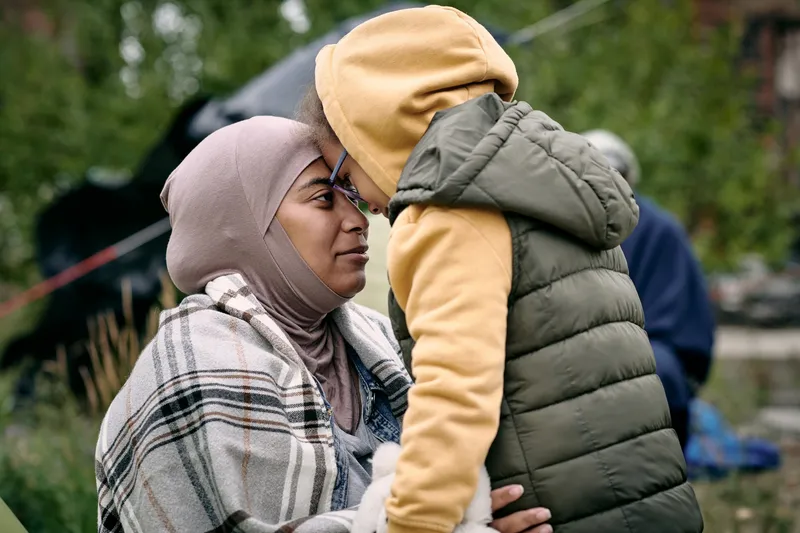What Can You Do to Address DCF Foster Care Issues for Children?
Imagine being a child in foster care, moving into different foster homes with all your belongings stuffed in a trash bag. This heartbreaking image highlights the DCF foster care issues many families face today. Riya and Mack, loving parents separated from their children due to Massachusetts Department of Children and Families (DCF) actions, found themselves fighting an uphill battle against a system that seemed indifferent to their plight. They struggled to reunite with their kids, who felt lost and abandoned, carrying their lives in plastic bags.
Families like Riya and Mack often feel helpless and trapped by DCF’s complex processes. The emotional toll on children who see their parents struggle against a faceless bureaucracy is immense. These foster care challenges make an already tough situation even more difficult for families trying to rebuild their lives.
In this article, we will explore practical steps to address DCF foster care issues and provide support and resources for families working toward reunification. Keep reading to learn how you can advocate for your rights and ensure the well-being of your children during these challenging times.
What Are the Main DCF Foster Care Issues Faced by Children?
Children in foster care face many emotional and mental health challenges. A significant issue is using trash bags for their belongings, symbolizing neglect. Over 10,000 children in Massachusetts foster care face frequent moves and instability, leading to anxiety and depression.
How Does the Use of Trash Bags as Luggage Highlight a Major DCF Issue?
Using trash bags as luggage shows a lack of dignity and care for foster children. It makes them feel like their possessions and, by extension, they themselves are disposable. This practice can cause deep emotional harm, reinforcing feelings of worthlessness and abandonment.
For instance, Riya and Mack’s children, like many others, were handed trash bags during their move, which only added to their trauma. This issue is not just symbolic but reflects a broader systemic failure to provide proper resources and support for foster kids,
What Emotional and Psychological Impacts Do These Issues Have on Children?
Foster children often feel abandoned and anxious, exacerbated by the instability of their living situations. Moving from one foster home to another with trash bags adds to their stress and feelings of insecurity. This can lead to severe emotional and psychological impacts, such as attachment disorders and behavioral issues. Recognizing and addressing these feelings is key to their well-being.
Studies show that children in foster care are at a higher risk of mental health issues, with over 50% experiencing some form of emotional or behavioral disorder. Providing stable, supportive environments can mitigate these effects.
How Can Families Advocate for Their Rights and Reunification?
Families must stand up for their rights to reunite with their children. Knowing the legal process and how to navigate it can help.
What Legal Representation Options Are Available for Families?
Getting a good lawyer is vital. They can help you understand the system and fight for your rights. Look for lawyers who specialize in DCF cases and have a track record of successful reunifications. Legal representation can guide families through complex processes, ensuring their voices are heard and their rights protected.
In Massachusetts, many attorneys have dedicated their careers to defending families against DCF. Legal aid organizations also provide support for those who cannot afford private lawyers.
How Can Families Navigate the DCF Investigation Process?
To handle the DCF process, you need to know the steps. Here are some tips:
- Keep Detailed Records: Document all interactions with DCF and related professionals.
- Communicate Clearly: Be honest and consistent in your communications.
- Seek Support: Join support groups and connect with others who have faced similar challenges.
- Legal Representation: Engage a lawyer experienced in DCF cases to guide you.
A lawyer can guide you through the investigation, ensuring you meet requirements and deadlines. Proper support increases the chances of reunification.
What Support Services Are Available for Families Facing DCF Issues?
Families dealing with DCF foster care issues can access various support services to help navigate this challenging time. These services provide both emotional and practical support, which is crucial for families working towards reunification.
Where Can Families Find Emotional and Psychological Support?
Emotional and psychological support is vital. Resources include:
- Therapists and Counselors: Specialists in trauma and family dynamics.
- Support Groups: Local community centers or non-profits, like MSPCC.
- Child Advocacy Programs: Programs like CASA support the child’s best interests.
What Community Resources Are Available for Practical Assistance?
Practical assistance can ease the burden. Resources include:
- Housing Assistance: Programs such as Massachusetts’ Emergency Assistance Shelter Program can help families find stable housing.
- Food Pantries: Organizations like the Greater Boston Food Bank provide essential nutrition to families in need.
- Childcare Services: Childcare services offered by local YMCAs or Head Start programs allow parents to attend court hearings and DCF meetings.
How Can Families Ensure the Well-Being of Their Children During DCF Processes?
Ensuring the well-being of children involves maintaining strong family bonds and creating a safe environment.
What Steps Can Be Taken to Maintain Family Bonds?
Maintaining family bonds is vital for the emotional stability of children in foster care. Here are some tips:
- Regular Visits: Schedule consistent visitation times to reinforce the parent-child relationship.
- Open Communication: Keep in touch and provide emotional support through phone calls, video chats, and letters.
- Family Activities: To strengthen bonds, engage in activities such as reading books together, playing games, or cooking, even if done remotely.
How Can Families Create a Safe and Nurturing Environment?
Creating a safe and nurturing environment is essential for children’s well-being. Here’s how:
- Stable Home: Ensure the home environment is safe, clean, and free from hazards.
- Emotional Support: Provide constant emotional support and reassurance to the children.
- Healthy Routines: Establish regular routines for meals, bedtime, and activities to give children a sense of security.
Studies show that children in stable, supportive environments fare better emotionally and academically. By fostering a nurturing home, families can help children feel secure and valued.
What Legal Actions Can Be Taken Against Unfair DCF Practices?
Families can fight unfair DCF actions to protect their rights and work towards reunification. Knowing your rights and the legal steps available can help address these issues. Taking legal action ensures that the family’s voice is heard and that DCF is held accountable for its practices.
What Are the Steps to Request a Fair Hearing?
Requesting a Fair Hearing can help challenge DCF’s decisions. Here’s how to proceed:
- Submit the Request: You must request a Fair Hearing within 30 days of the decision you are contesting.
- Provide Documentation: Include all relevant documents that support your case, such as medical records, letters from teachers, and any other evidence.
- Legal Representation: Having a lawyer represent you can significantly improve your chances. They can help present your case effectively and ensure all legal procedures are followed.
By following these steps, families can address unfair DCF practices and work towards the fair treatment and reunification of their children.
Key Takeaway
Addressing DCF foster care issues requires understanding the emotional and practical challenges faced by children and families. Knowing your rights, seeking legal representation, and utilizing available support services can help you advocate effectively for family reunification. Ensuring the safety and well-being of children during this process is crucial for their emotional and psychological health.
Continued advocacy and awareness are essential to improve DCF practices and foster care conditions. Families must remain proactive in documenting issues and seeking legal recourse when necessary. With the right support and resources, families can work towards a fairer and more supportive foster care system.
[title style=”center” text=”DISCLAIMER”]
You find yourself in this situation, it’s advisable to seek legal representation from a qualified attorney, like those at the Law Office of Kevin Seaver, who can advocate for your rights and guide you through the complex process of a DCF investigation.
Remember that the ultimate goal of DCF is to ensure the safety and well-being of children while supporting families in crisis.
Please note that this article does not create an Attorney-Client relationship between our law firm and the reader and is provided for informational purposes only. Information in this article does not apply to all readers.
Readers should not rely on this information as legal advice and should seek specific counsel from the attorney based on personal circumstances. Thank you.
Kevin Patrick Seaver is a Massachusetts DCF Defense Lawyer who represents parents against false child abuse allegations.
[gap]
[section label=”Media Left” bg_color=”rgb(193, 193, 193)” bg_overlay=”rgba(255, 255, 255, 0.85)” padding=”60px”]
[row style=”large” v_align=”middle”]
[col span=”3″ span__sm=”12″ bg_color=”rgb(0, 35, 71)”]
[ux_image id=”13950″]
[/col]
[col span=”9″ span__sm=”12″ align=”left”]
Massachusetts DCF Defense Lawyer Kevin Seaver has been successfully fighting false child abuse allegations since 1991.
[/col]
[/row]
[/section]






